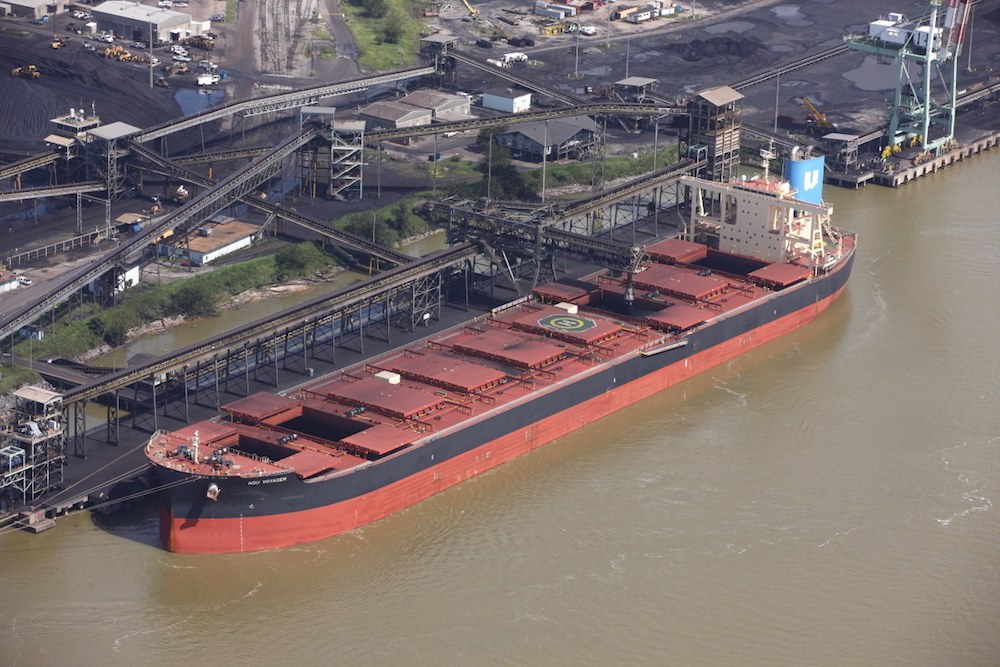The Alabama State Port Authority received another Newcastle Max bulk carrier loading a record 135,484 short tons (122,909 metric tons) of export metallurgical grade coal at its McDuffie Coal Terminal. The Newcastle Max class bulk carrier, NSU VOYAGER, matches the previous record bulk ship to call the port measuring 984.2 feet (300 meters) in length overall (LOA) and has a width of 164.3 feet (50 meter beam). All of her cargo loaded at McDuffie consisted of Alabama metallurgical grade coal bound for Asian markets.

Rick Clark, deputy director and chief operating officer for the Port Authority, noted the increased Newcastle Max calls match increasing Post-Panamax vessel calls into Mobile, in part due to ongoing infrastructure investments. “We’re rapidly achieving our goal to deepen the channel to -50 ft. draft, and shippers are seeking ports where they can soon leverage capacity opportunities.” The U.S. Army Corps of Engineers and the Port Authority recently signed the project agreement to let channel construction contracts by year-end 2020. “When our channel is deepened, the Newcastle Max will be able to load far more tonnage, generating more capacity and better rates to service international market opportunities,” said Clark.
The harbor improvements along with the Port Authority’s recent terminal investments, technology and personnel training primarily serve coal and containerized shippers using the larger bulk and container vessels. “The ability of the Port team to handle this larger class of vessel in an efficient and effective manner is a tribute to our customers, assets and staff,” said Bernard Scott, manager of McDuffie Terminal. “It takes a team effort, and in today’s challenging markets, this is something to celebrate.” Alabama’s metallurgical coal market is in demand and on the upswing with nearly $1.4 billion in recent or planned mining investments. Alabama’s low sulfur, high quality coking coal is ideally suited for steel makers. Currently, Alabama holds about 4 billion tons of economically recoverable coal reserves, with 80 per cent of those reserves comprised of metallurgical grade coal, according to a 2019 Auburn University at Montgomery economic impact study
The Alabama State Port Authority owns and operates the State of Alabama’s deep-water port facilities at the Port of Mobile and its public facilities handle more than 26 million tons of cargo annually. The Authority’s container, general cargo and bulk facilities have immediate access to two interstate systems, five Class 1 railroads, and nearly 15,000 miles of inland waterway connections.









